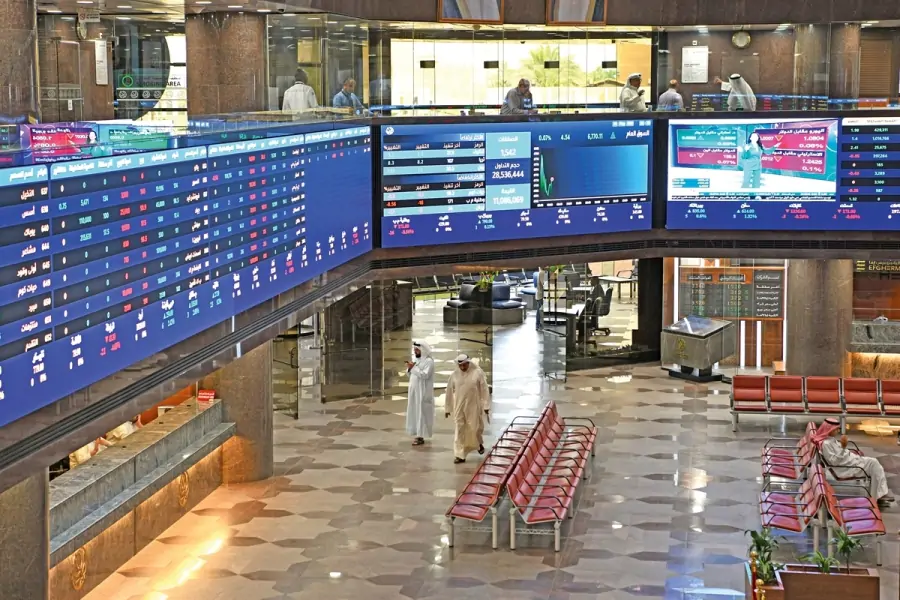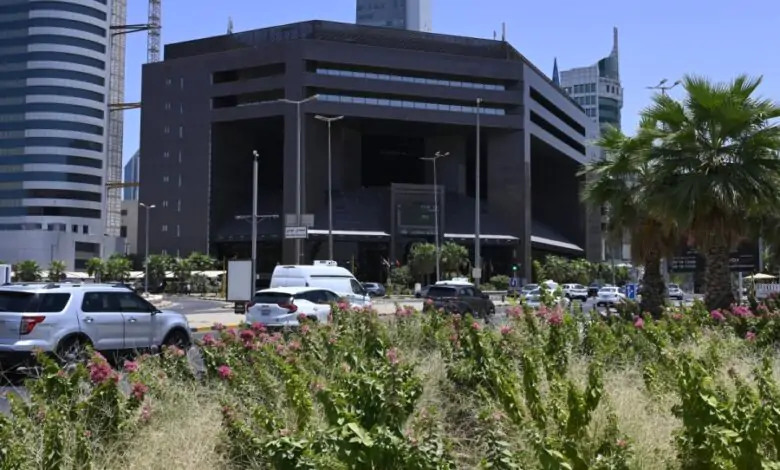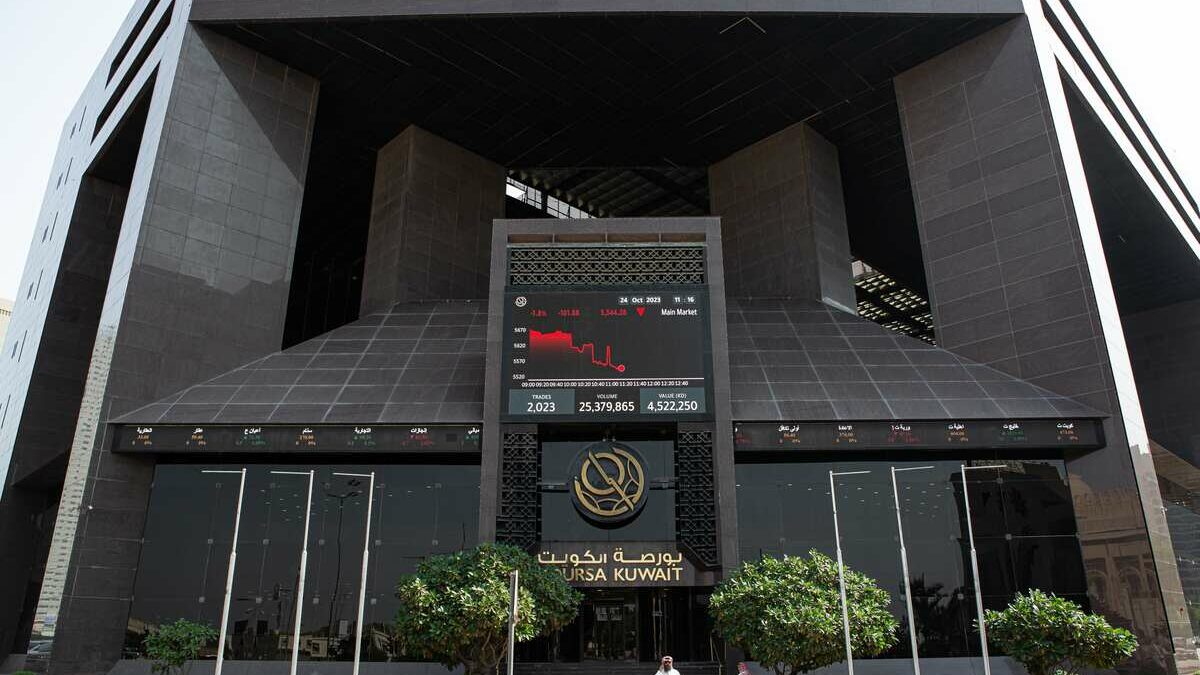The Kuwait Stock Exchange (KSE) has witnessed one of its most dynamic years yet, as total liquidity surged to an impressive 22.6 billion Kuwaiti dinars in the first ten months of 2025. This remarkable rise in market activity not only highlights investor confidence but also reflects Kuwait’s growing role as a leading financial hub in the Gulf region. The surge comes amid a series of positive economic reforms, stronger corporate performance, and heightened participation from both institutional and retail investors.
In a year marked by global economic challenges and volatile oil prices, the Kuwaiti market has stood resilient, driven by robust fundamentals and proactive government policies. The steady inflow of investments and consistent trading volumes are being seen as key indicators of a maturing market that continues to attract attention from local and international stakeholders alike.
Strong Investor Confidence Driving Market Momentum
Investor sentiment in Kuwait’s capital market has been exceptionally optimistic throughout 2025. The rise in liquidity suggests that both domestic and foreign investors view the Kuwaiti economy as stable and promising. Increased transparency, modernized trading systems, and the implementation of international best practices by market regulators have all contributed to fostering this trust.
Retail investors have also played a significant role in driving the surge in trading activity. With improved access to digital trading platforms and growing financial literacy, a larger portion of the population is engaging with the stock market. Meanwhile, institutional investors continue to anchor market stability, channeling substantial funds into blue-chip and high-performing stocks.
The diversification of investment portfolios across sectors such as banking, telecommunications, real estate, and energy has been another contributing factor. As Kuwaiti companies expand regionally and globally, investors have found new opportunities for growth, pushing overall market liquidity to record levels.
Economic Reforms and Vision 2035 Fueling Market Expansion
The government’s commitment to Kuwait Vision 2035 a long-term development plan aimed at transforming the country into a regional financial and commercial center has significantly boosted market confidence. Reforms aimed at improving governance, financial infrastructure, and investment regulations have provided a fertile ground for capital market expansion.
One of the key milestones has been the continuous modernization of the Kuwait Stock Exchange’s systems and operational frameworks. These upgrades have enhanced efficiency, improved market accessibility, and attracted more international participants. The Capital Markets Authority (CMA) has also played a pivotal role by enforcing transparency, protecting investor rights, and facilitating cross-border listings.
The privatization of key state-owned entities and the encouragement of private sector participation have further diversified the investment landscape. Such reforms have not only driven liquidity but also enhanced Kuwait’s competitiveness on the global financial stage.

Sector-Wise Performance Reflecting Broad Economic Strength
The surge in market liquidity has been evenly spread across major sectors, reflecting the resilience and adaptability of the Kuwaiti economy. The banking sector continues to dominate trading activity, supported by strong profits, digital transformation, and expansion of credit facilities. Kuwaiti banks have also benefited from the Central Bank’s balanced monetary policies, which have maintained stability despite global interest rate fluctuations.
The real estate sector has shown renewed vitality, with developers and investors finding fresh momentum amid infrastructure expansion and a growing population. Meanwhile, the energy sector remains a cornerstone of the market, with oil companies maintaining strong valuations due to stable production and strategic diversification into renewable energy ventures.
Telecommunications and logistics firms have also contributed significantly to market liquidity. Their consistent performance and innovation in service delivery have attracted long-term investors seeking steady returns.
Rise of Retail Participation and Digital Transformation
A notable trend in 2025 has been the rapid digitalization of trading activities. The Kuwait Stock Exchange’s investment in advanced trading platforms has made market access easier than ever. Retail investors, especially young professionals, are increasingly engaging in real-time trading and portfolio management through mobile applications.
Financial institutions and brokerage firms have also launched digital advisory services and investor education initiatives, equipping new participants with essential knowledge of market dynamics. This democratization of finance has empowered individuals to make informed investment decisions and participate actively in wealth creation.
Social media and financial influencers have further helped shape market conversations, encouraging transparency and accessibility. As a result, Kuwait’s financial market has evolved into a more inclusive ecosystem where both institutional and retail investors play integral roles.
Foreign Investment and Global Recognition
International investors have shown growing interest in Kuwait’s financial market, viewing it as a stable and promising destination in the Middle East. The inclusion of Kuwaiti stocks in major global indices has further enhanced visibility and credibility. The continued efforts to align with international standards in governance and financial reporting have reassured foreign stakeholders about the integrity of the market.
Additionally, strategic collaborations with other stock exchanges in the Gulf region have improved liquidity and cross-border trading potential. The growing integration of Kuwait’s financial system with global markets underscores its readiness to attract long-term foreign direct investment.
Foreign funds, particularly from Asia and Europe, have steadily increased their holdings in Kuwaiti equities. This inflow of capital not only strengthens market liquidity but also brings global expertise and best practices to local financial institutions.
Government Support and Policy Stability
Government policies aimed at economic diversification and market liberalization have provided a strong foundation for this year’s market success. Fiscal discipline, transparent regulations, and ongoing infrastructure projects have created a supportive environment for sustainable growth.
The government’s encouragement of entrepreneurship, innovation, and private sector participation has diversified the economy beyond oil dependence. This strategic shift has opened new investment channels and reduced exposure to global oil market volatility.
Furthermore, initiatives such as public-private partnerships (PPPs) have enabled the creation of large-scale infrastructure and development projects. These ventures have attracted both domestic and foreign investors, further contributing to the liquidity surge.

Challenges and Opportunities Ahead
Despite the positive momentum, the Kuwaiti market faces challenges that require continuous attention. Global geopolitical tensions, currency fluctuations, and shifts in oil demand remain potential risks. However, the market’s resilience in navigating such challenges has been proven time and again.
The continued implementation of regulatory reforms, technological advancement, and investor education will be crucial in maintaining sustainable growth. The Kuwait Stock Exchange also aims to expand its range of products, such as exchange-traded funds (ETFs), derivatives, and green bonds, to attract diversified investments.
The growing emphasis on environmental, social, and governance (ESG) principles is another opportunity for Kuwait’s financial ecosystem. Companies adhering to sustainable practices are likely to gain greater investor interest, aligning with global trends in responsible investment.
Role of Financial Institutions and Market Leaders
Financial institutions have been instrumental in supporting market liquidity. Banks, investment companies, and brokerage firms have provided essential financial products and advisory services, guiding investors through complex market conditions.
Market leaders have also demonstrated transparency, resilience, and commitment to innovation. Their ability to adapt to changing economic landscapes has helped sustain confidence and attract new participants.
Moreover, the rise of fintech startups in Kuwait has introduced innovative solutions for payments, trading, and investment management. These technological advancements have enhanced market accessibility, reduced transaction costs, and created new pathways for financial inclusion.
Vision for the Future
As Kuwait looks ahead to 2026 and beyond, the momentum in its stock market presents a clear sign of progress and optimism. With the continued implementation of Vision 2035, the country is well-positioned to become a major financial powerhouse in the region.
The synergy between government entities, private companies, and financial institutions will remain vital in maintaining growth. Encouraging sustainable investment, expanding financial literacy, and embracing digital transformation are expected to remain top priorities.
The impressive liquidity figure of 22.6 billion dinars in just ten months serves as a testament to Kuwait’s economic strength and investor confidence. It reflects a market that is not only growing in size but also in sophistication and inclusivity.
A Bright Outlook for Kuwait’s Financial Future
The rise in liquidity marks a defining chapter in Kuwait’s financial journey. It demonstrates the success of collective efforts across sectors and stakeholders to modernize and strengthen the economy.
As global markets evolve, Kuwait continues to position itself as a beacon of financial innovation and stability in the Gulf region. With the right mix of policy reforms, investor engagement, and technological advancement, the Kuwait Stock Exchange is poised to sustain its growth trajectory.
The achievements of 2025 have set a new benchmark for the years ahead proving that with resilience, vision, and unity, Kuwait’s financial future shines brighter than ever.
Do follow Gulf Magazine on Instagram.
Also Read – Kuwait and Japan Forge Stronger Bonds Through Empowerment and Culture



